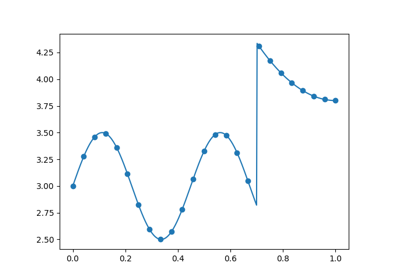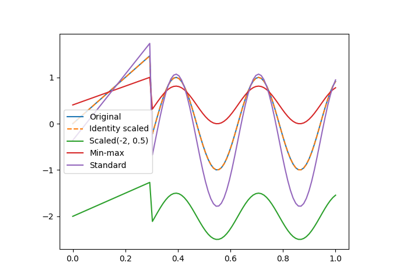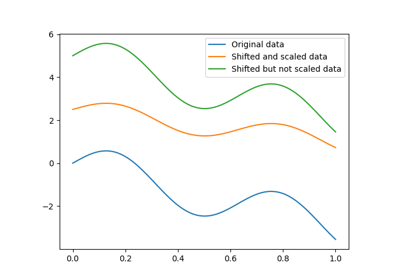scaler module¶
Scaling a variable with a linear transformation.
The Scaler class implements the default scaling method
applying to some parameter \(z\):
where \(\bar{z}\) is the scaled version of \(z\). This scaling method is a linear transformation parameterized by an offset and a coefficient.
In this default scaling method, the offset is equal to 0 and the coefficient is equal to 1. Consequently, the scaling operation is the identity: \(\bar{z}=z\). This method has to be overloaded.
See also
- class gemseo.mlearning.transformers.scaler.scaler.Scaler(name='Scaler', offset=0.0, coefficient=1.0)[source]¶
Bases:
TransformerData scaler.
- Parameters:
- compute_jacobian(data, *args, **kwargs)¶
Force a NumPy array to be 2D and evaluate the function
fwith it.
- compute_jacobian_inverse(data, *args, **kwargs)¶
Force a NumPy array to be 2D and evaluate the function
fwith it.
- duplicate()¶
Duplicate the current object.
- Returns:
A deepcopy of the current instance.
- Return type:
- fit(data, *args)¶
Fit the transformer to the data.
- fit_transform(data, *args)¶
Fit the transformer to the data and transform the data.
- inverse_transform(data, *args, **kwargs)¶
Force a NumPy array to be 2D and evaluate the function
fwith it.
- transform(data, *args, **kwargs)¶
Force a NumPy array to be 2D and evaluate the function
fwith it.



